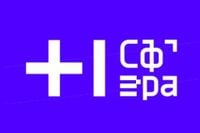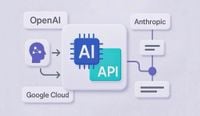In an era where artificial intelligence (AI) continues to reshape industries, the recent launch of an AI assistant for developers by the Sfera platform marks a significant milestone. This innovative tool, built on open-source AI models, aims to optimize the code review process, a task that traditionally consumes a considerable portion of developers' time.
According to estimates, developers typically spend up to 20% of their working hours reviewing code. The AI assistant addresses this issue by automating the review process, allowing developers to focus on more critical tasks. "Using AI in the development process has ceased to be merely a technological trend; it is now a real tool that helps businesses reduce costs and improve code quality," stated Yuri Matsygin, head of the production block at NOTA, an IT holding company.
The assistant facilitates the review of merge requests, providing comments and recommendations for correcting deficiencies. This mechanism enables teams to view, analyze, and discuss changes before they are integrated into the main branch of a project, thus enhancing collaboration and efficiency.
One of the key advantages of this AI tool is its ability to optimize process logic and increase employee productivity. By automating tasks that would otherwise require manual intervention, the AI assistant significantly reduces the time costs associated with code reviews.
Furthermore, the tool addresses scalability challenges faced by large projects. It allows for the rapid processing of a high volume of merge requests, making it indispensable for companies striving for efficient software development while minimizing long-term costs.
Looking ahead, the Sfera platform plans to expand the functionality of its AI assistant. Future enhancements will include automating code refactoring, writing unit tests, and generating documentation. These improvements are expected to further reduce time expenditures and elevate the quality of software products.
This development comes at a time when the integration of AI into various sectors is accelerating. Companies are increasingly seeking ways to leverage AI's potential to streamline operations and enhance productivity. As the landscape of software development evolves, tools like the Sfera AI assistant will likely become standard practice, transforming how developers approach their work.
In addition to the AI assistant, the broader AI landscape is experiencing rapid advancements, with several prominent APIs available for developers. For instance, OpenAI's API provides access to various language models designed for natural language tasks. This API allows developers to implement advanced features with minimal effort, making it an attractive option for businesses looking to incorporate AI capabilities into their applications.
Similarly, Anthropic's Claude 3.7 Sonnet model has recently been released, enhancing capabilities in programming, content generation, data analysis, and planning. With a context window of 200,000 tokens, it is available through multiple platforms, including Amazon Bedrock and Google Cloud Vertex AI.
Google's Vertex AI offers a comprehensive suite of machine learning services, featuring both proprietary models and third-party solutions. This platform enables developers to access a wide range of tools for building AI applications, further democratizing access to advanced AI technologies.
On the other hand, AWS Bedrock provides a unified API for accessing various pre-trained models from different providers, allowing for fine-tuning and customization. This flexibility is particularly beneficial for developers looking to experiment with different AI solutions without being locked into a single provider.
For those seeking high-performance AI computations, Groq and Cerebras stand out in the hardware domain. Groq's architecture is optimized for high-speed inference of large language models, while Cerebras is renowned for its Wafer-Scale Engine (WSE), the largest chip ever created, designed to accelerate AI calculations significantly.
As the AI landscape continues to evolve, webinars and educational opportunities are emerging to help developers stay informed about the latest trends and technologies. Notably, upcoming webinars will cover topics such as creating APIs using Django REST Framework and machine translation using seq2seq models.
These educational initiatives aim to equip developers with the knowledge and skills necessary to navigate the rapidly changing world of AI and machine learning. As organizations increasingly adopt AI technologies, the demand for skilled professionals who can leverage these tools effectively will continue to grow.
In conclusion, the integration of AI into software development processes is not just a trend but a transformative movement that promises to enhance productivity and efficiency. With tools like the Sfera AI assistant and the availability of powerful APIs, developers are better positioned to tackle the challenges of modern software development while maintaining high standards of quality.


